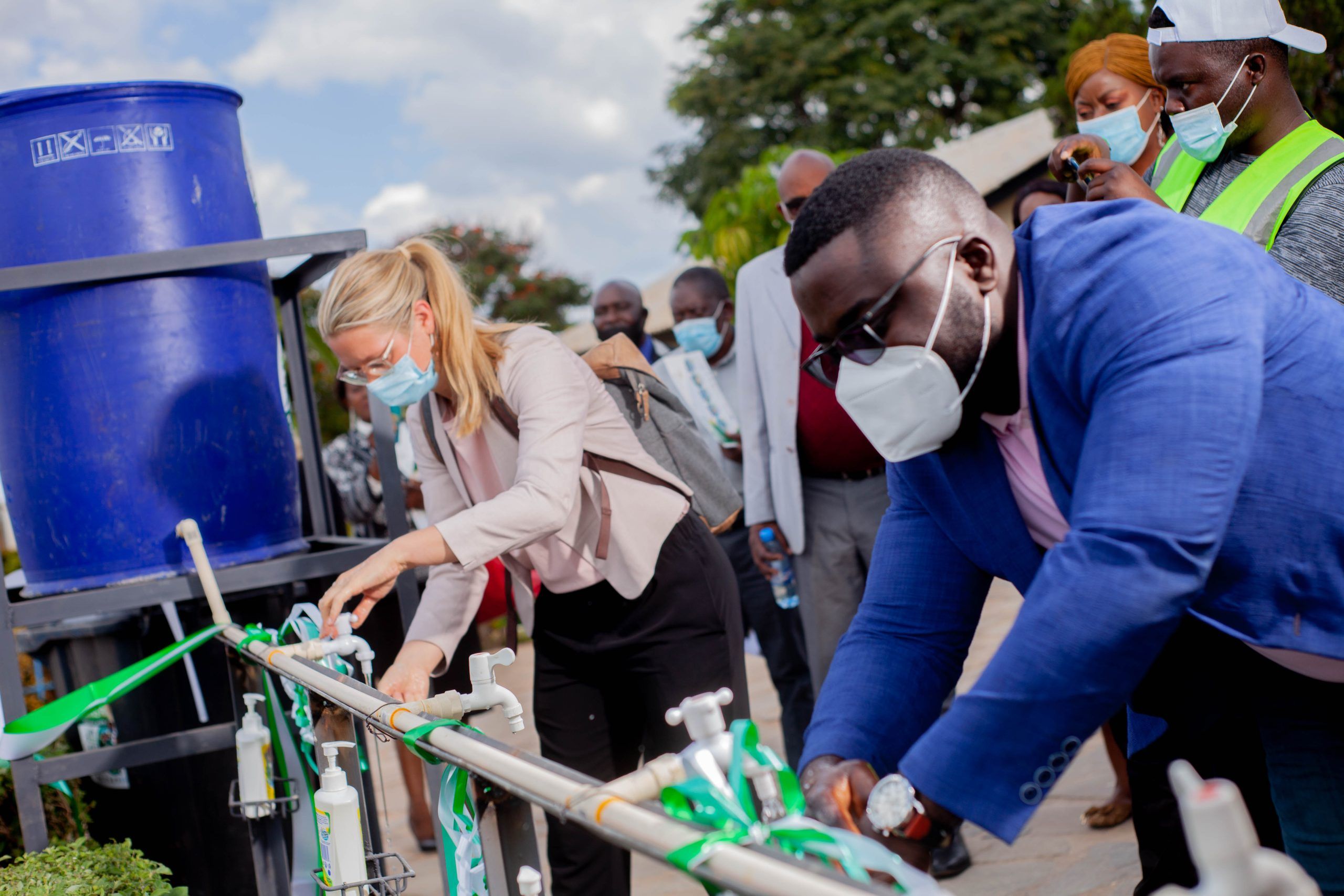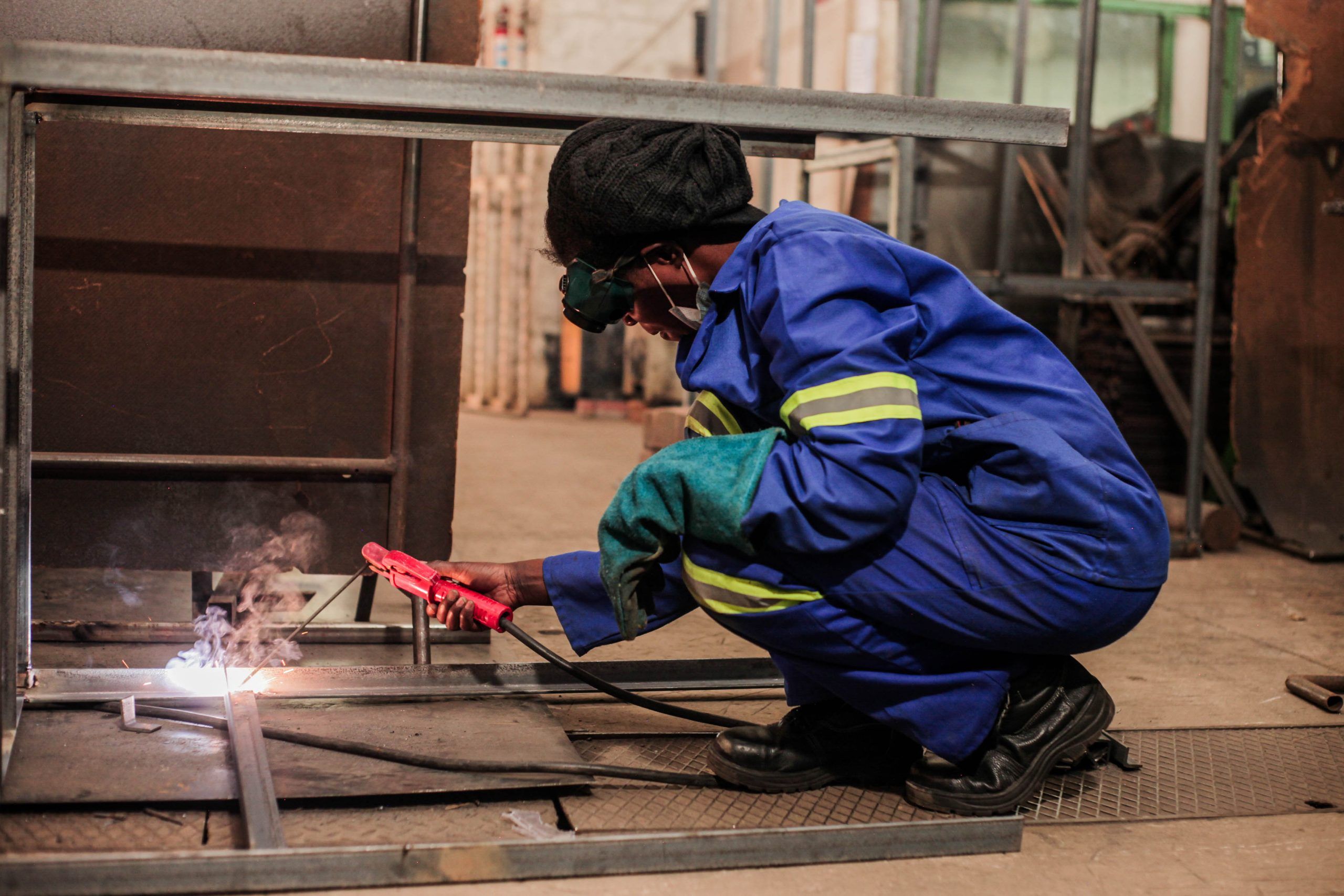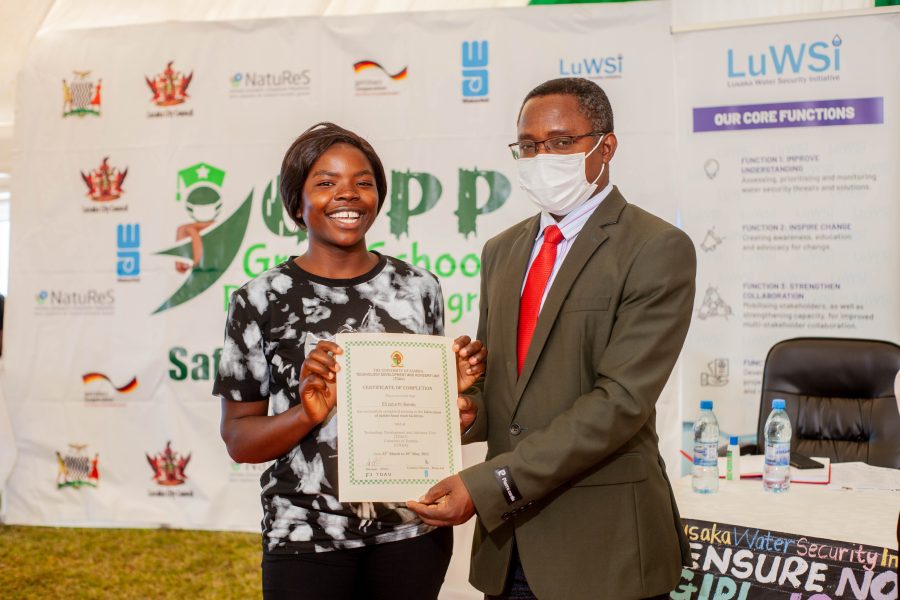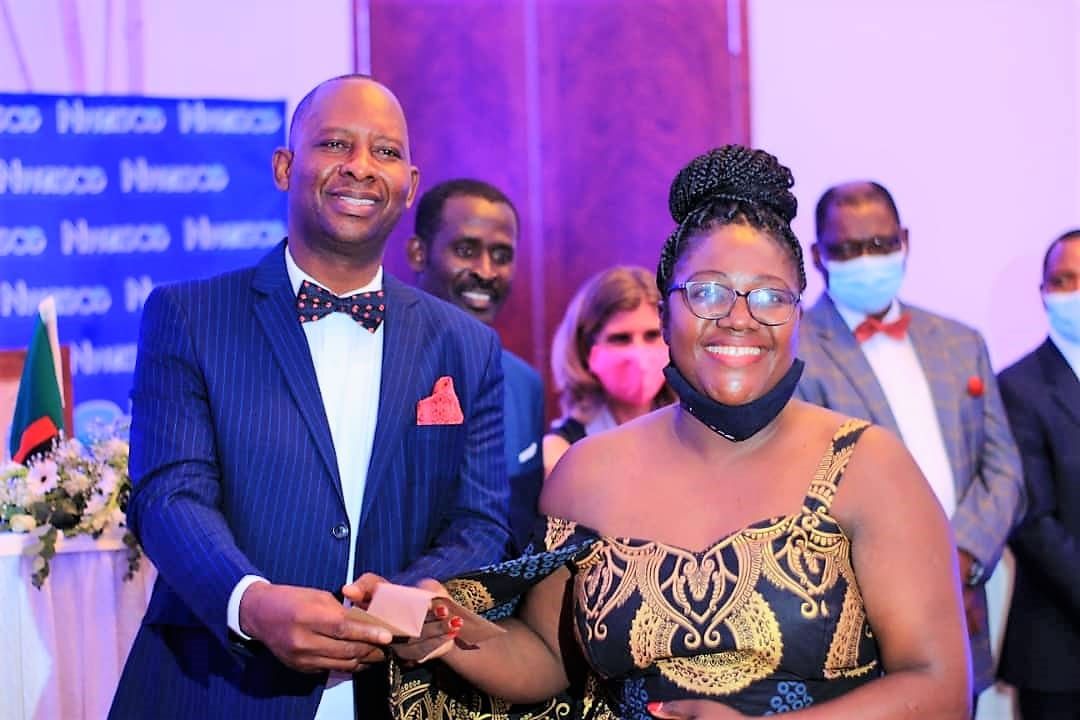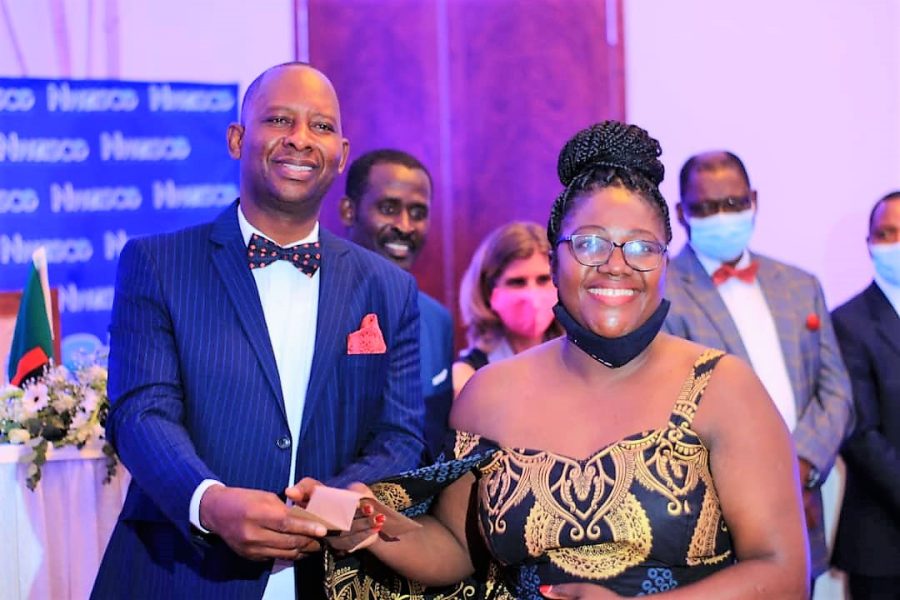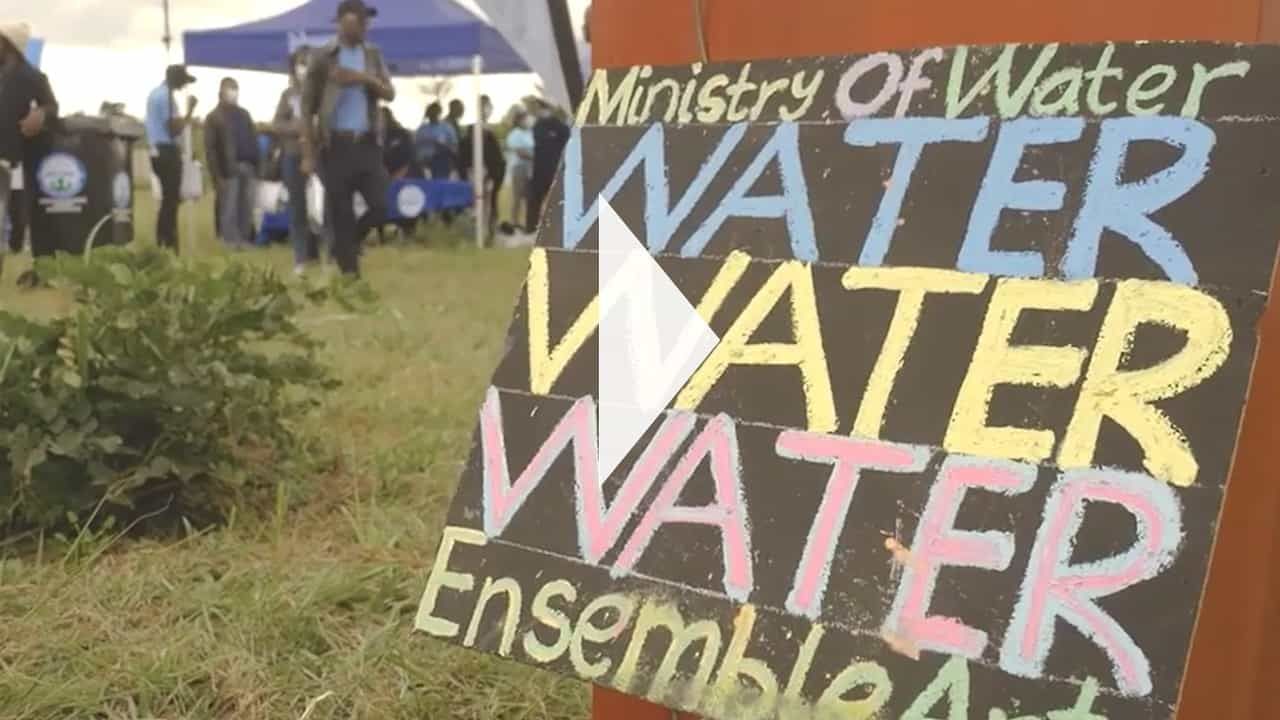The Safe Back to School Campaign in Lusaka – Close-out of Phase Three
The Green Schools Partnership Programme (GSPP) focuses on improving and enhancing Water, Sanitation and Hygiene (“WASH”) in schools within Lusaka. It specifically targets public and community schools in Lusaka’s most vulnerable (peri-urban) communities.

The Safe Back to School (SB2S) Campaign is a project implemented under the GSPP as a response to the Covid-19 pandemic. The campaign supports the implementation of prevention and control measures to enable learners and teachers return to school in a safe environment. This is achieved through improving knowledge of key hygiene behaviours for Covid-19 prevention in schools and surrounding communities, adherence to preventive measures, improving Covid-19 multi-sectoral coordination in Lusaka District and enhancing accountability and reporting mechanisms for targeted schools.
The SB2S campaign has had three phases since 2020, with the most recent phase ending in May 2022. In this third phase alone, 80 schools within Lusaka District have been reached, and 72.000 learners, 2.400 teachers and 400.000 community members have been sensitized and trained in Covid-19 prevention and proper sanitation and hygiene practices. The project also provides handwash facilities, waste bins and hygiene items to schools. For the sustainability of these facilities, local female entrepreneurs have been capacitated to fabricate the necessary handwash stations, improving economic opportunities for their local businesses. Collaborating partners of this project include Lusaka City Council, Lusaka District Education Board, the Zambian Ministry of Health, WaterAid and the University of Zambia (UNZA); all collaborating under the Lusaka Water Security Initiative(LuWSI) partnership.
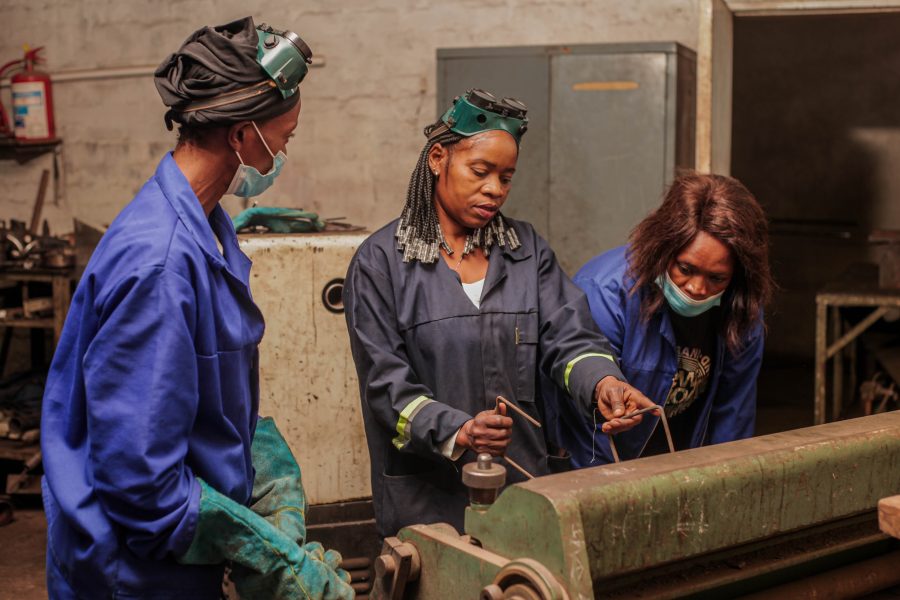
To commemorate the success of the third phase of the SB2S campaign, a close-out event was held on the 13th of May 2022 at Mumana Primary School in Lusaka. The event garnered representation from all collaborating partners, including the District Commissioner’s office and the German Embassy. It included lively skits and poems from pupils of the target schools. During the event, the ten best performing schools in terms of WASH practices and facilities, i.e availability and accessability of sanitation and handwash facilities, were awarded with further hand hygiene and environmental cleaning materials. Moreover, the female entrepreneurs received their metal fabrication certification, testifying their capacity to produce the necessary handwashing stations.
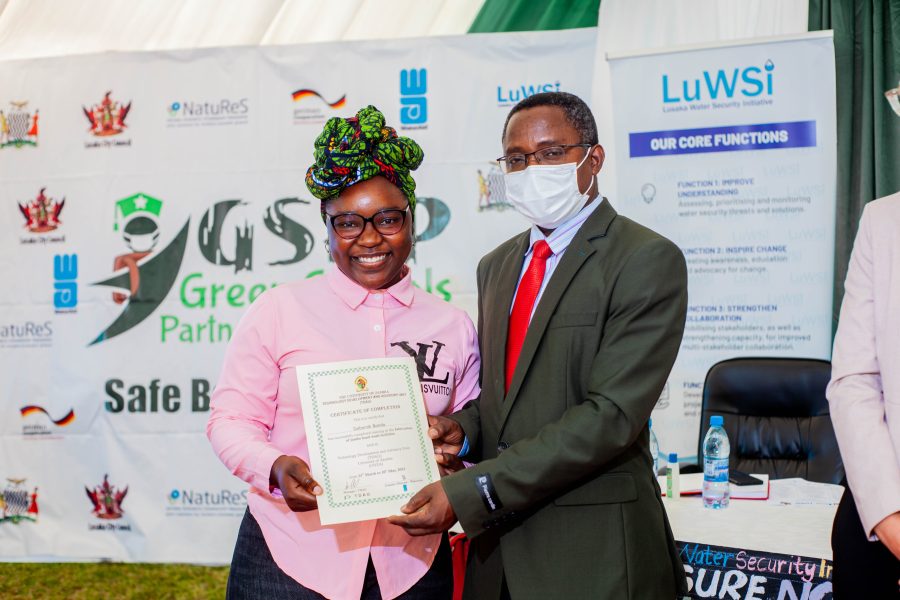
Schools were also given the opportunity to display their environmental and menstrual health management innovations. There was praise and acknowledgement for the dedication and collaboration of partners towards the success of the campaign. Partners also made appeals for the campaign to continue and be extended to all the schools in Lusaka.
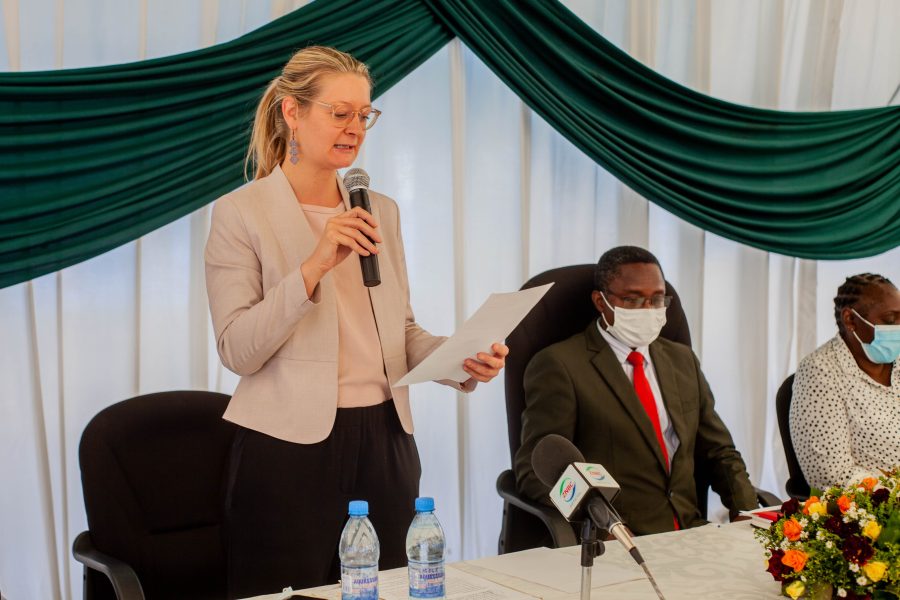
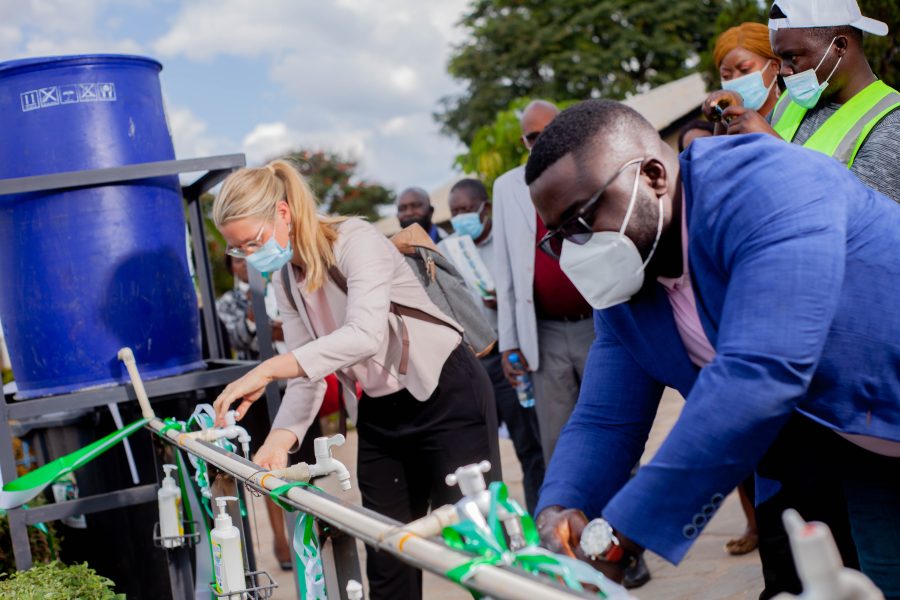
NatuReS supports multi-stakeholder partnerships to sustainably manage natural resources and provide direct and effective support to prevent the spread of the Covid-19 pandemic, mitigate its impacts and build more resilient cities and communities.
Author: Sonile Mutafya, NatuReS Advisor Zambia
